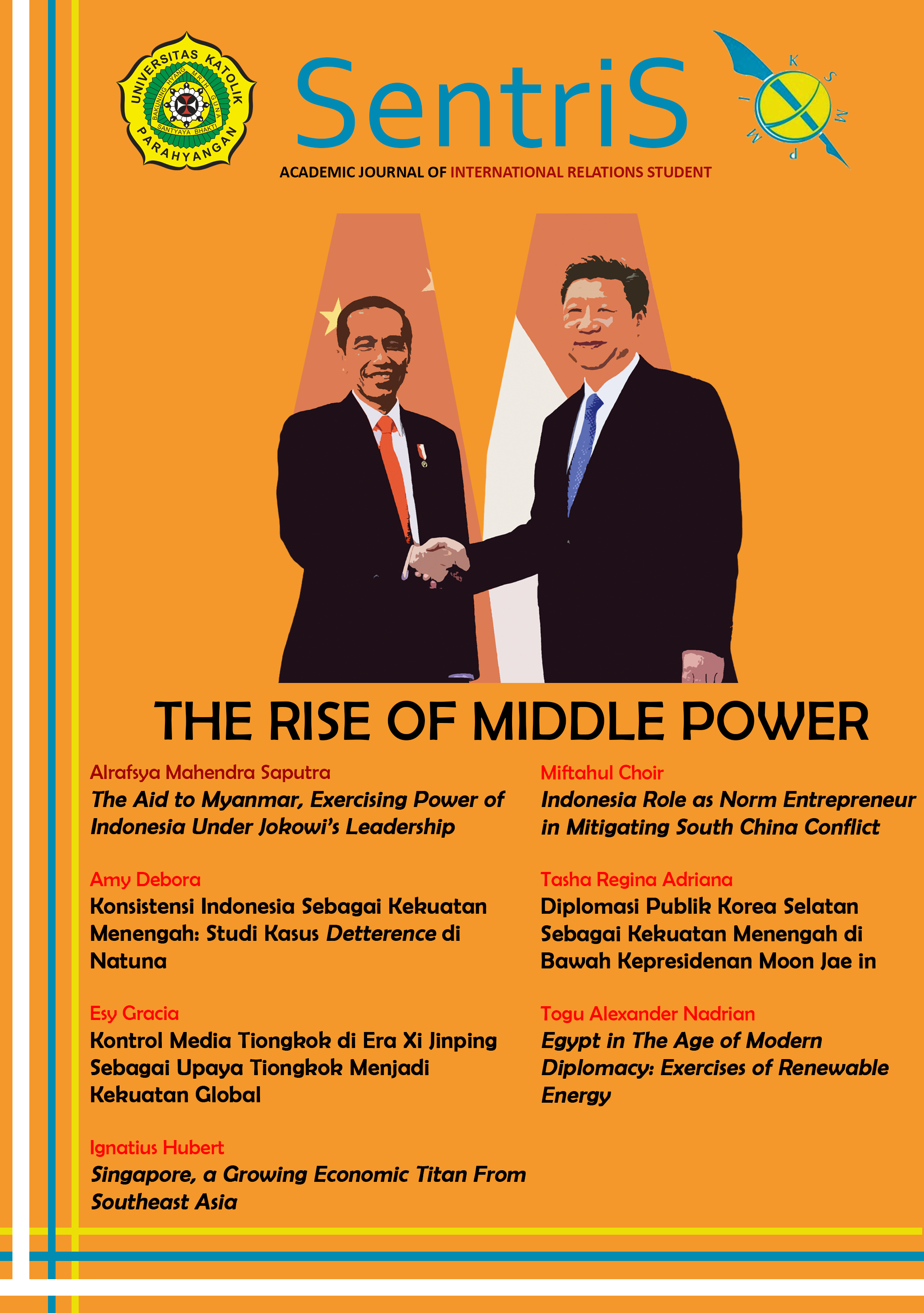Konsistensi Indonesia sebagai Kekuatan Menengah: Studi Kasus Respon Deterrence di Natuna
DOI:
https://doi.org/10.26593/sentris.v2i2.4150.14-30Keywords:
South China Sea, middle power, Indonesian foreign policy, deterrence, diplomacyAbstract
As Jakarta is working to resolve the South China Sea (SCS) territorial dispute through its role as an honest broker, Beijing seems to lead the SCS conflict right into the foremost defense of the Republic of Indonesia. This is indicated by the China Coast Guard (CCG) aggressive actions in guarding illegal fishing in Natuna Sea. The conflict escalation raises the question of whether Natuna will enter into the SCS territorial dispute. However, these concerns did not occur due to the appropriate response of Jakarta in maintaining the stability of the region without undermining its defense of its territorial sovereignty. Significantly strengthening the defense in Natuna does not create a security dilemma for ASEAN member countries as it is done in conjunction with the border diplomacy effort. This shows the success of border diplomacy as indirect deterrence against China. This paper will be divided into 4 sections, first the author will give an overview of the SCS conflict and the threats to maritime security in Natuna. Next will be described the concept of ‘middlepowermanship’ according to Cooper, Higgot and Nossal who states that the middle power is reflected from the characteristics of foreign policy. This paper finds that the response reflects the Indonesia’s consistency as a middle power. Proved by Indonesia’s niche diplomacy under Jokowi administration, as well as the role of Jakarta as coalition builder for ASEAN.Downloads
Published
2020-08-19
Issue
Section
Articles


